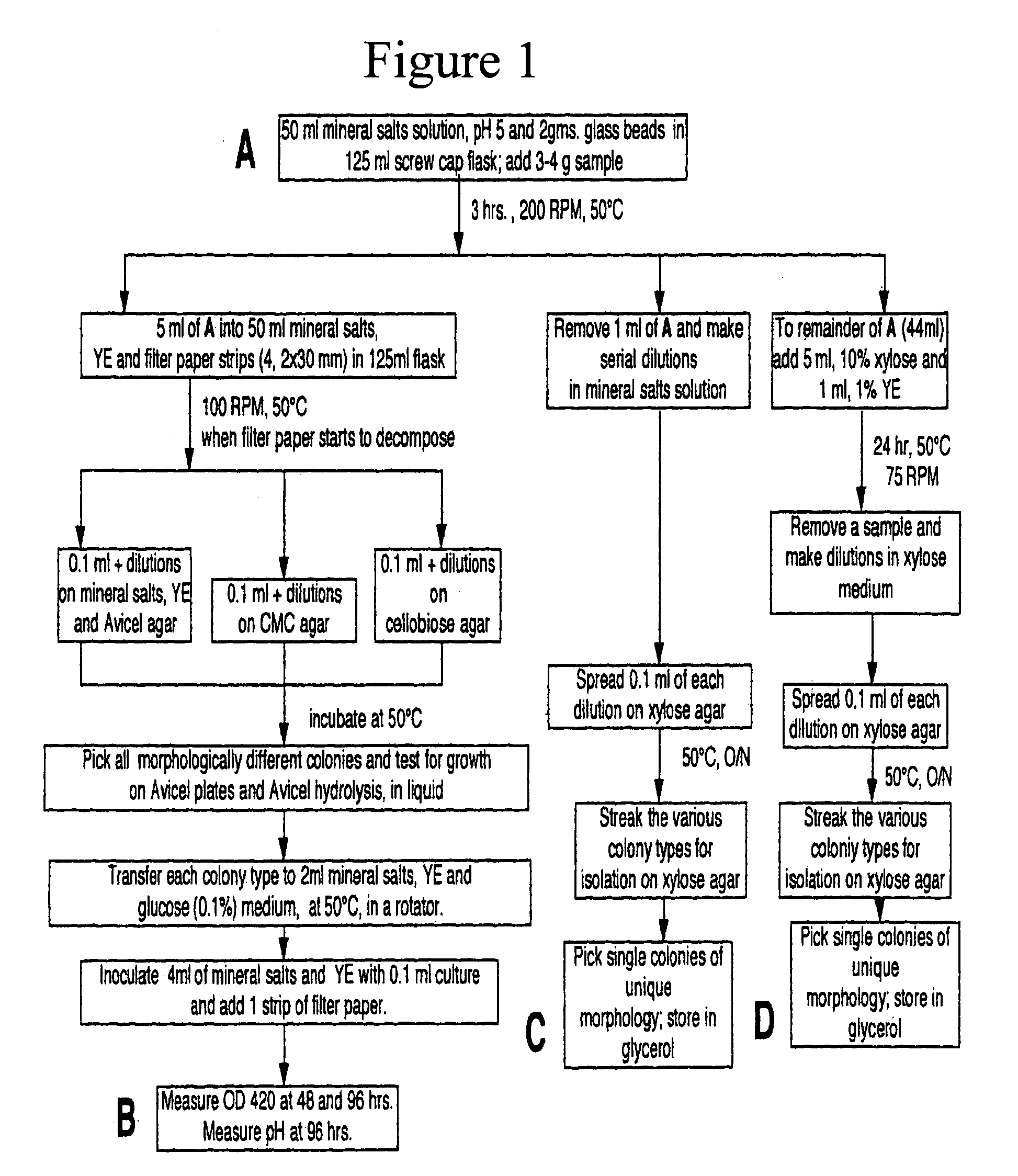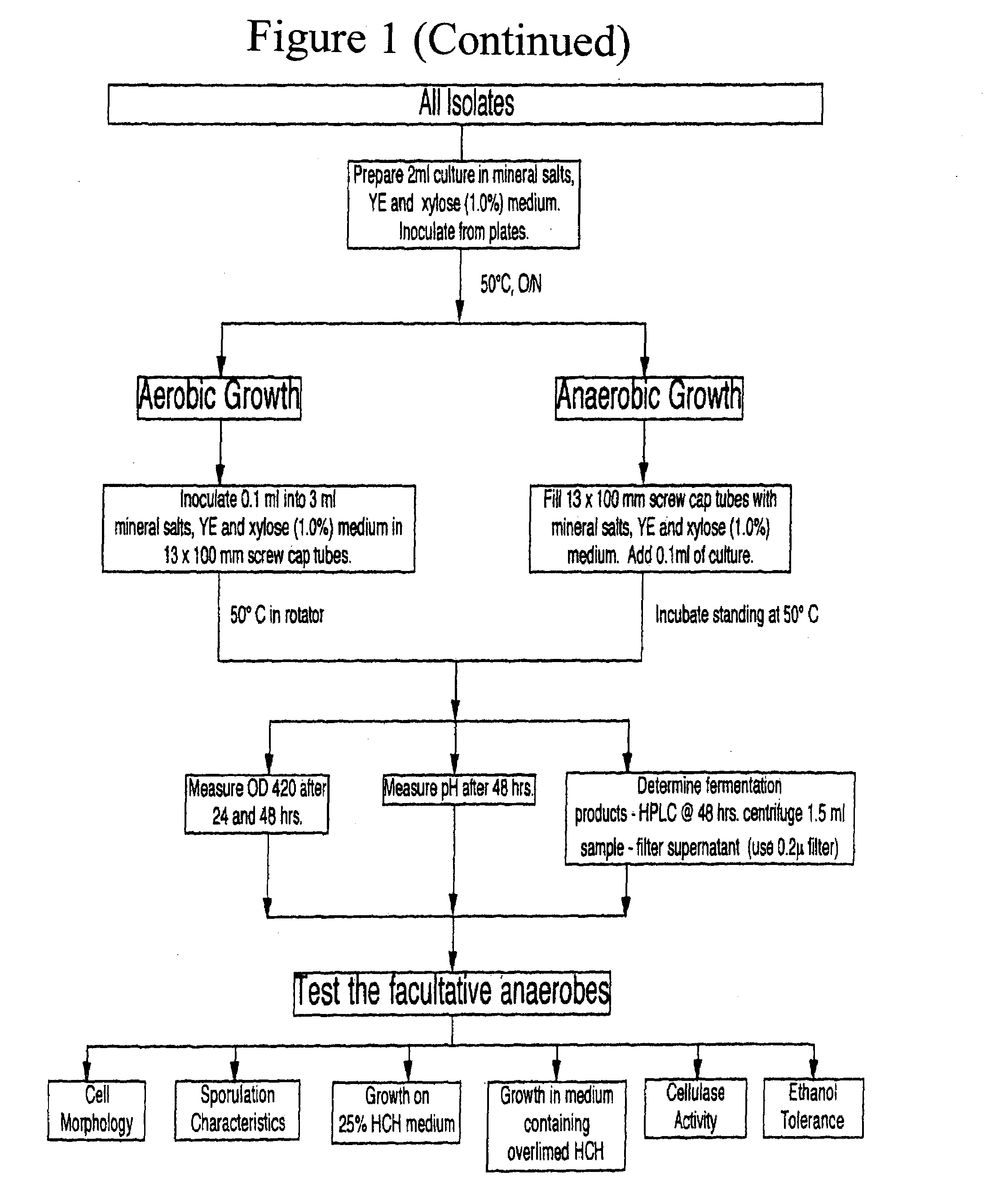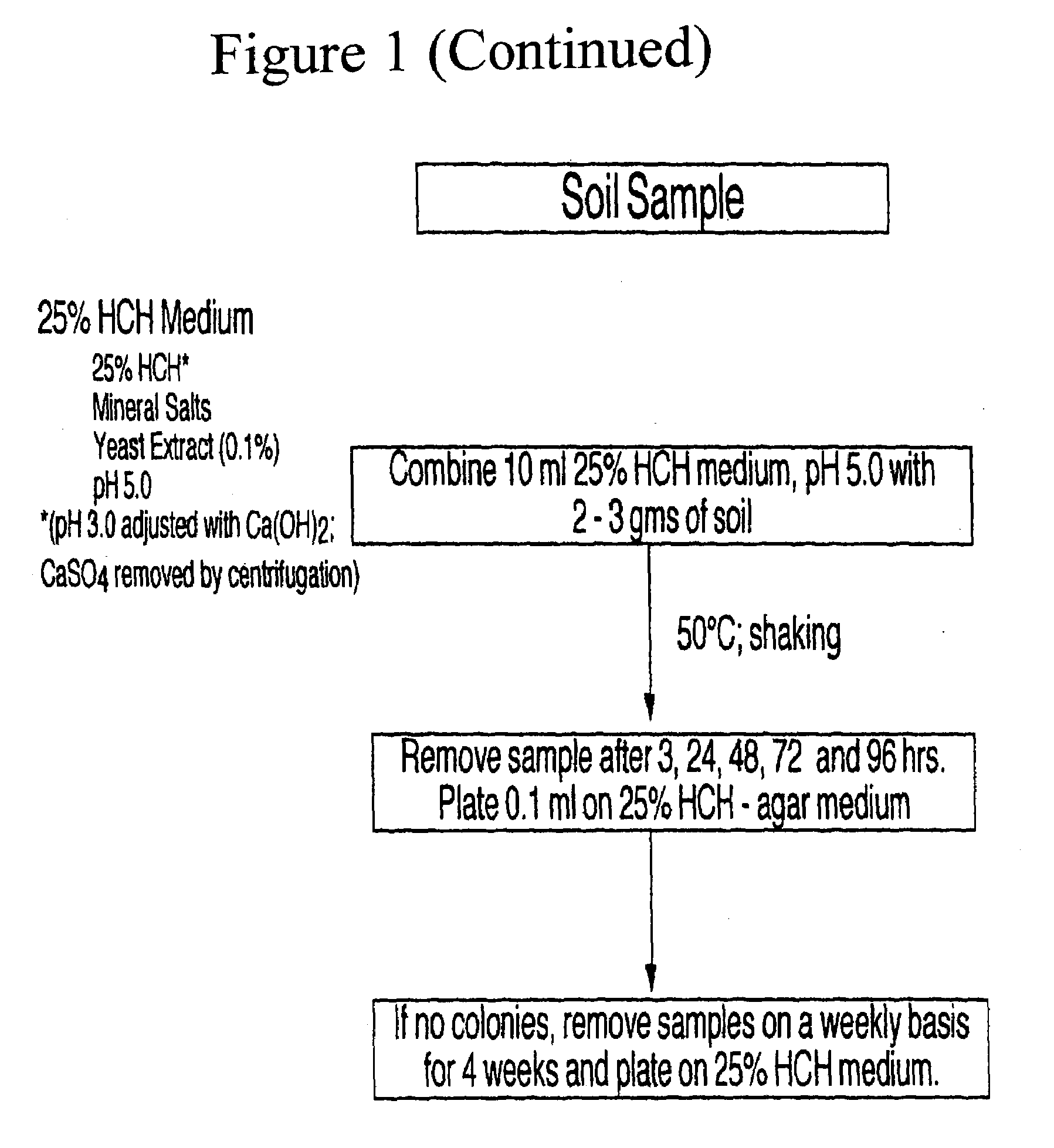Production of chemicals from lignocellulose, biomass or sugars
a technology of lignocellulose and biomass, applied in the direction of transferases, enzymology, bacteria based processes, etc., can solve the problems of complex nutritional requirements, limited theoretical yield of lactic acid, and inefficient phosphoketolase pathway metabolization, etc., to achieve cost saving, high yield, and high yield
- Summary
- Abstract
- Description
- Claims
- Application Information
AI Technical Summary
Problems solved by technology
Method used
Image
Examples
example 1
Isolation and Characterization of Organisms
[0131]Environmental samples from 77 locations (Table 1) were collected and bacteria which grew in xylose medium at a pH of 5.0 and at 50° C. were isolated. The protocol followed for the enrichment and isolation is presented in FIG. 1. Using this enrichment, a total of 380 bacterial isolates were obtained. After initial screen, isolates were analyzed for various characteristics and the results obtained with 334 isolates are presented in Table 2.
[0132]Characteristics analyzed included: 1) Growth under aerobic and anaerobic conditions in rich medium as well as in minimal salts medium (with or without supplements such as yeast extract or corn steep liquor) at a starting pH of 5.0 or 6.8; 2) Fermentation profile of facultative organisms; 3) Growth in hemicellulose hydrolysate (both overlimed and not-overlimed) at a starting pH of 5.0; 4) Ethanol tolerance; 5) Ability to grow at a starting medium pH of less than 5.0; 6) Ability to produce xylanas...
example 2
Additional Analysis of Isolates 17C5, 36D1, P4-102B, and P4-74B
[0143]Four isolates were selected for further study (isolates 17C5, 36D1, P4-102B, and P4-74B). Isolates 17C5 and 36D1 grew and fermented the sugars in sugar cane bagasse hemicellulose hydrolysate as well as SSF of crystalline cellulose, Solka Floc, in minimal-salts medium with 1% corn steep liquor. Isolate P4-102B was easily transformable by plasmid DNA. Isolate P4-74B was included because of its growth and fermentation characteristics.
Taxonomy of the New Isolates
[0144]Based on the sequence of first 500 bp of the 16S rRNA sequence (as discussed in Example 1), 37 of the 39 tested isolates, including the four selected strains, were found to form a unique phylogenetic group with the nearest neighbor being Bacillus coagulans. To confirm these identities, the DNA encoding the entire 16S rRNA from three of the isolates, 17C5, 36D1 and P4-102B, was sequenced and these sequences were compared to other sequences in the rRNA sequ...
example 3
Analysis of Bacillus sp. Isolate 17C5
[0166]Bacillus sp. isolate 17C5 was isolated from Old Faithful Geyser of California (Calistoga, Calif.) and grown on L-broth (tryptone, 1%; yeast extract; 0.5%, NaCl, 0.5%). Sugar cane bagasse hemicellulose hydrolysate was prepared using dilute sulfuric acid under proprietary conditions and was kindly provided by BC International, Dedham, Mass. This hydrolysate was treated with lime as described previously (Martinez A, Rodriguez M E, Wells M L, York S W, Preston J F, Ingram L O (2001) Detoxification of dilute acid hydrolysates of lignocellulose with lime. Biotechnol. Prog. 17: 287–93). Total sugar content after lime treatment was 81.3 g / l (xylose, 68.6 g / l; glucose, 11.5 g / l; arabinose, 1.2 g / l). Media used in fermentation experiments contained per liter: 50% to 90% v / v lime-treated hydrolysate; 6.25 g Na2HPO4, 0.75 g KH2PO4, 2.0 g NaCl, 0.2 g MgSO4.7 H20, 1.0 g (NH4)2SO4, 10 mg FeSO4.7H20, 10 mg Na2MoO4.2H2O, 1 ml trace mineral solution (Allen M...
PUM
 Login to View More
Login to View More Abstract
Description
Claims
Application Information
 Login to View More
Login to View More - R&D
- Intellectual Property
- Life Sciences
- Materials
- Tech Scout
- Unparalleled Data Quality
- Higher Quality Content
- 60% Fewer Hallucinations
Browse by: Latest US Patents, China's latest patents, Technical Efficacy Thesaurus, Application Domain, Technology Topic, Popular Technical Reports.
© 2025 PatSnap. All rights reserved.Legal|Privacy policy|Modern Slavery Act Transparency Statement|Sitemap|About US| Contact US: help@patsnap.com



